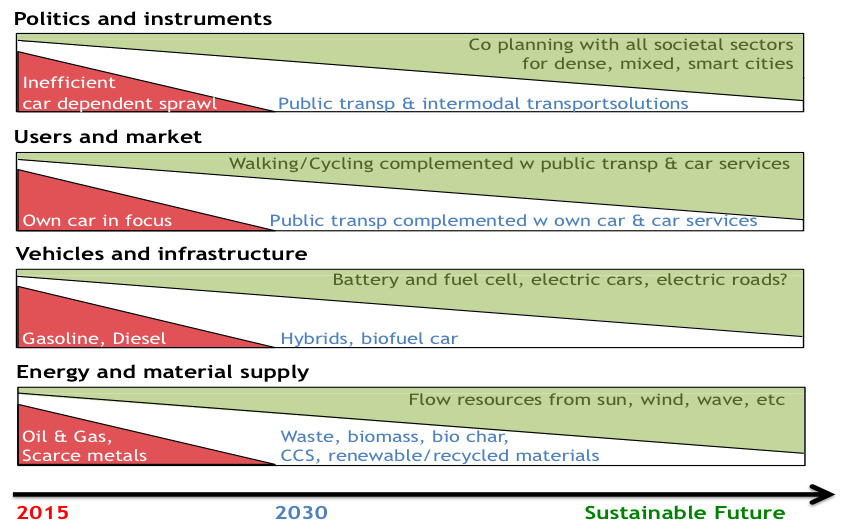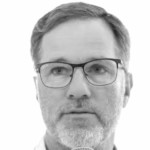Current energy production relies on fossil resources, and that together with the extensive use of electricity and fuels are main causes to sustainability issues around the globe. Within the energy sector, transport of people and goods are an important puzzle-piece for societal development. However, the unsustainable use of materials and labour from a life-cycle perspective are together with emissions to air, land, and sea are causing sustainability issues around the globe. So, how can we transform to sustainable energy & transport system(s) based on renewable sources and efficient use of energy carriers that can comply with principles for a social, ecological, and economical sustainable future?

The aim of the course is to develop the student’s knowledge and understanding of current energy & transport systems, their sustainability consequences, and how they can be transformed strategically to sustainability.
Read more about learning outcomes in the course syllabus.
About this course:
This 12,5 credit distance course will utilize the framework for strategic sustainable development (FSSD), including a science-based principled definition of sustainability and a process for transformation towards such future. Prior knowledge about strategic sustainable development (e.g. courses with SSD content at BTH or the Natural Step) is therefore required for students applying to this course. Read more about the FSSD and Sustainability Principles in the Journal of Cleaner Production.
SustainTrans research team members Sven Borén, Henrik Ny, Varvara Nikulina, Giles Thomson, Judith Achieng Oginga, and Thomas Berger with several years of experience of research and teaching about Sustainability and Sustainable Energy and Transport Systems will together with external experts be teachers at the course.
When and how?
This course is given in English and runs on half-time (50%) from September to December each year. It is taught fully online with webinars each week, live or recorded lectures, plus readings, assignments, and project group work.
Welcome to apply via universityadmissions.se
Who should attend?
The new knowledge about sustainable energy & transport systems provided by this course is meant to guide organizations, regions/countries or private persons regarding how to choose sustainable sources and how to use energy and transport in an efficient way that at the same time provides a return on investment. The layout is designed to provide a high degree of flexibility to fit well with parallel studies or professional life.
Admission to the course requires taken a university education of at least 120 credits, taken a course about Strategic Sustainable Development of at least 2.5 credits, and the English language at least on level 6.
Costs?
Free of charge for EU/EES citizens, and 25 000 SEK for non- EU/EES citizens (depending on your country origin)

Henrik Ny

Sven Borén

Varvara Nikulina

Giles Thomson

Judith Oginga Martins
